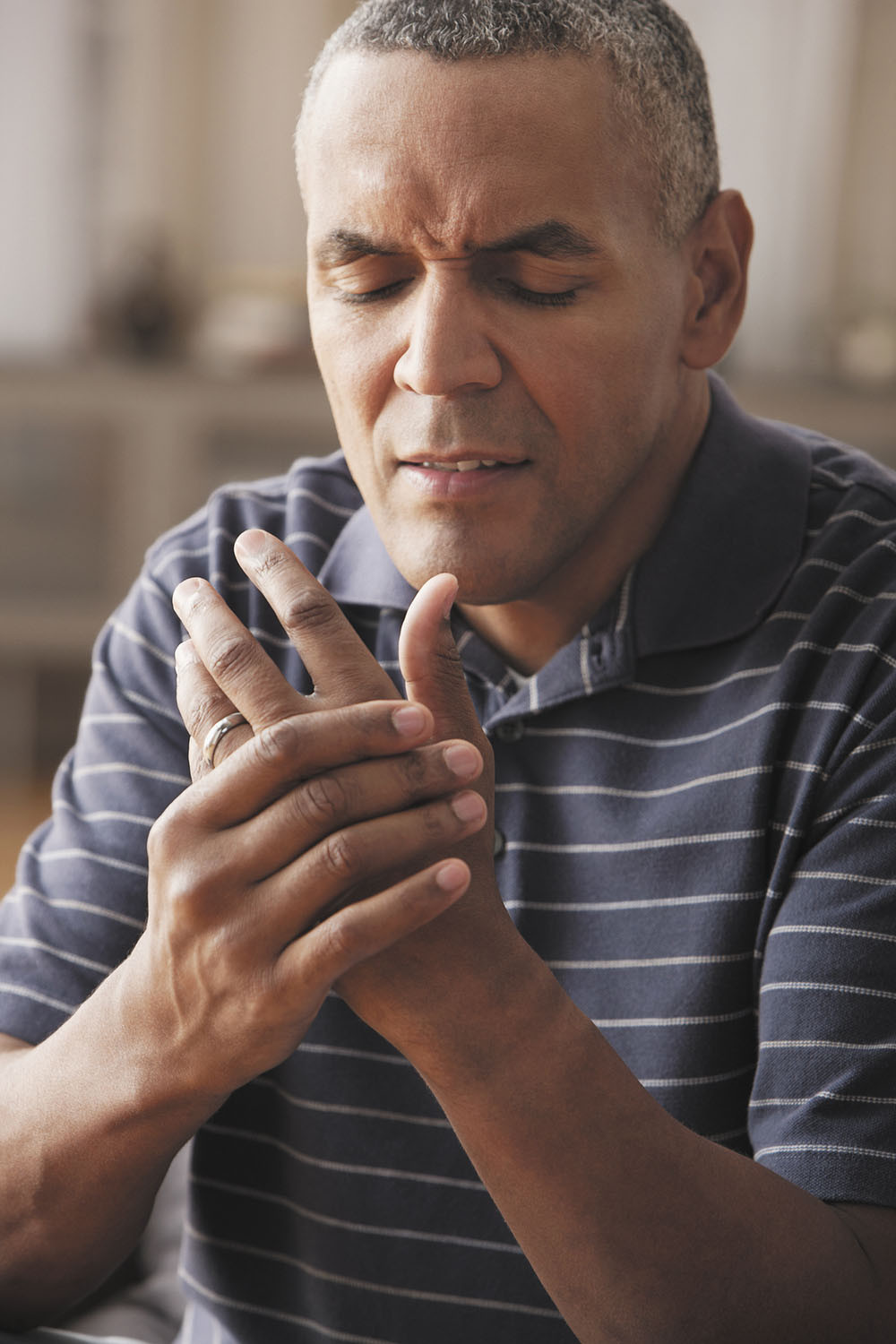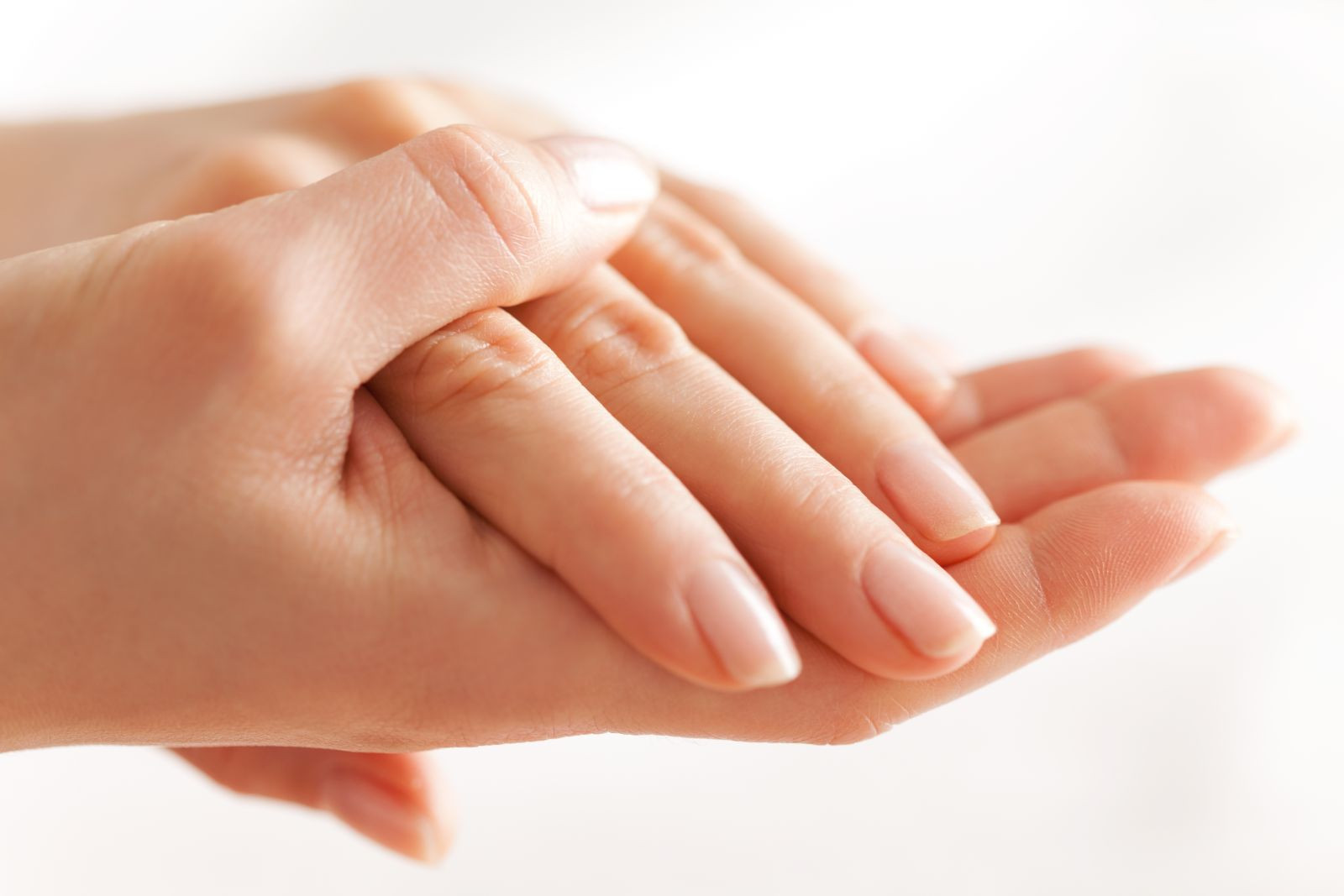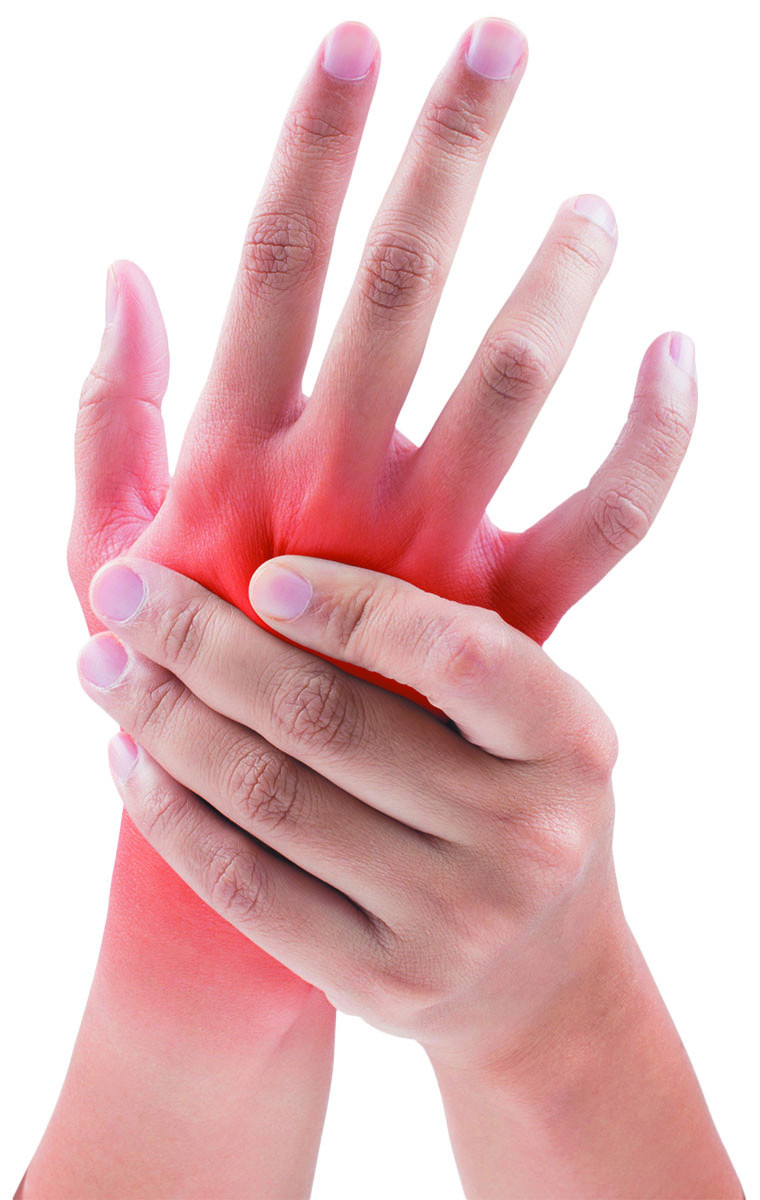
Trying to lose weight? Be careful not to lose muscle

Is your skin problem actually an autoimmune condition?

People with diabetes face higher risk of hearing loss

Antibiotic-free fixes for recurrent UTIs

Musculoskeletal syndrome of menopause: When menopause makes you ache all over

When can older women stop getting mammograms?

To lose weight, especially harmful belly fat, combine diet and exercise

Can men hold off on treating recurring prostate cancer?

The 7 types of rest and why we need them all

What are the early warning signs of cervical cancer?
Hands Archive
Articles
Safety of LED nail lamps
Ask the doctors
Q. I was worried about drying my nails with a lamp or light box at the nail salon because of the potential risk of cancer from the ultraviolet radiation, but my salon recently switched to LED lamps. Are they safer?
A. The light boxes used to cure polish during gel manicures, and to dry traditional nail polish, have raised some concern because — like tanning beds — they emit ultraviolet A (UVA) radiation, which is associated with a higher cancer risk. A 2014 study in JAMA Dermatology found that the level of UVA exposure associated with a gel manicure every two weeks probably isn't high enough to increase the risk of skin cancer significantly, but you are wise to be aware of the issue.
Getting a grip on hand osteoarthritis
Can you do anything about hand and finger joint pain?
Everyone experiences the occasional painful hands and sore fingers, but when osteoarthritis strikes, it can put a hold on many aspects of your life.
"As osteoarthritis progresses, you may lose some hand mobility, like the ability to grasp and hold objects," says Dr. Robert Shmerling, clinical chief of rheumatology at Harvard-affiliated Beth Israel Deaconess Medical Center and senior faculty editor at Harvard Health Publishing. "Over time, osteoarthritis can make the joints deformed, so it's harder to open and close your hands."
Taming carpal tunnel syndrome
Inside your wrist, a slick tunnel passes through the carpal bones. The nerves and tendons of the wrist pass through this space, called the carpal tunnel. One of these nerves, the median nerve, controls sensations in the palm side of the thumb, the index and middle fingers, and half of the ring finger. It also transmits the impulses to certain hand muscles that allow the fingers and thumb to move. Carpal tunnel syndrome occurs when this nerve becomes irritated or squeezed. Symptoms include numbness, tingling, pain, or weakness in the hand of the affected wrist.
Because the carpal tunnel starts out narrow, it doesn't take much to aggravate or compress the median nerve. A number of conditions can make a person more prone to carpal tunnel syndrome. These include:
By the way, doctor: What causes Beau's lines?
Q. You wrote about weak, brittle fingernails with longitudinal ridges. I have strong nails with horizontal ridges. What causes this, and what can I do about it?
A. You may be referring to Beau's lines, which are grooves that run horizontally across the nail plate. They usually develop when nail plate growth, which begins in the nail matrix (located under the cuticle), is temporarily disrupted. This can occur with direct injury to the nail matrix; an inflammatory condition such as psoriasis; infection around the nail plate; repetitive picking at the nails or cuticles; or even a manicure. Systemic causes include a common side effect of chemotherapy, nutritional deficiencies, illnesses accompanied by high fever, metabolic conditions, and diminished blood flow to the fingers (from Raynaud's phenomenon, for example).
Exercises for pain free hands
Your hands perform countless small and large tasks each day—from pouring coffee, brushing teeth, and buttoning shirts to raking leaves or kneading bread.
But aching hands can transform the simplest task into a painful ordeal. Hands can hurt for a variety of reasons, from the mechanical to the neurological. Arthritis—which affects one in five American adults—and other persistent joint problems are by far the most common cause of hand pain and disability.
A Harvard Medical School doctor answers a question about hand cramps
Q: I have strong hand cramps that curl my fingers into a claw shape. I can only straighten them by using my other hand. What can I do to keep this from happening?
A: What you describe sounds like carpal spasm. Spasms, or cramps, are involuntary muscle contractions. The most common causes of spasms are overused muscles (in the hands that might be due to writing or typing) and dehydration. Other causes of muscle cramping include low levels of calcium and magnesium.
The surprising side effects from using technology
Repetitive motion and poor posture can lead to aches and pains.
Image: © Johnny Greig/Getty Images
You've mastered the art of texting, emailing, and web surfing on your smartphone and computer. But along with that digital prowess, you've picked up an unexpected side effect.
"We get a number of patients who develop injuries from these activities," says Dr. Tamara Rozental, an orthopedic surgeon who specializes in hand, wrist, and elbow disorders at Harvard-affiliated Beth Israel Deaconess Medical Center.
Gout: Inflammation and your joints
Inflammation is a key component of arthritis and other chronic joint diseases. Gout, a painful and potentially debilitating form of inflammatory arthritis, develops when tiny, needle-shaped crystals of uric acid (a biological waste product) accumulate in the joints. The presence of these uric acid crystals triggers the release of cytokines, and these inflammatory messengers attract neutrophils and other white blood cells to the scene. Gout usually affects one joint at a time, most often the big toe, but sometimes it occurs in a knee, ankle, wrist, foot, or finger.
Early on, gout flare-ups tend to be intermittent. If gout persists for a long time, the joint pain can be ongoing and mimic other types of arthritis. After several years, uric acid crystals may collect in the joints or tendons. They can also collect under the skin, forming whitish deposits. They are called tophi, lumps of tissue that form under the skin of fingers, knuckles, and elsewhere.
Best ways to cope with hand pain
Aches or numbness may keep you from doing the things you love. Find out what's behind your pain, and do something about it.
Hand pain becomes common as we get older. Tingling and numbness, aching or locking joints, and difficulty grasping objects are frequent complaints. But don't make your own diagnosis and suffer in silence. "It's difficult to discern between different types of hand pain. Some have overlapping symptoms," says Dr. Sang-Gil Lee, a hand surgeon at Harvard-affiliated Massachusetts General Hospital.
Dr. Lee advises that you seek treatment as soon as possible for persistent hand pain, before it gets so advanced that it's tough to use your hands for even the simplest jobs, like brushing your teeth or buttoning a shirt.

Trying to lose weight? Be careful not to lose muscle

Is your skin problem actually an autoimmune condition?

People with diabetes face higher risk of hearing loss

Antibiotic-free fixes for recurrent UTIs

Musculoskeletal syndrome of menopause: When menopause makes you ache all over

When can older women stop getting mammograms?

To lose weight, especially harmful belly fat, combine diet and exercise

Can men hold off on treating recurring prostate cancer?

The 7 types of rest and why we need them all

What are the early warning signs of cervical cancer?
Free Healthbeat Signup
Get the latest in health news delivered to your inbox!
Sign Up











